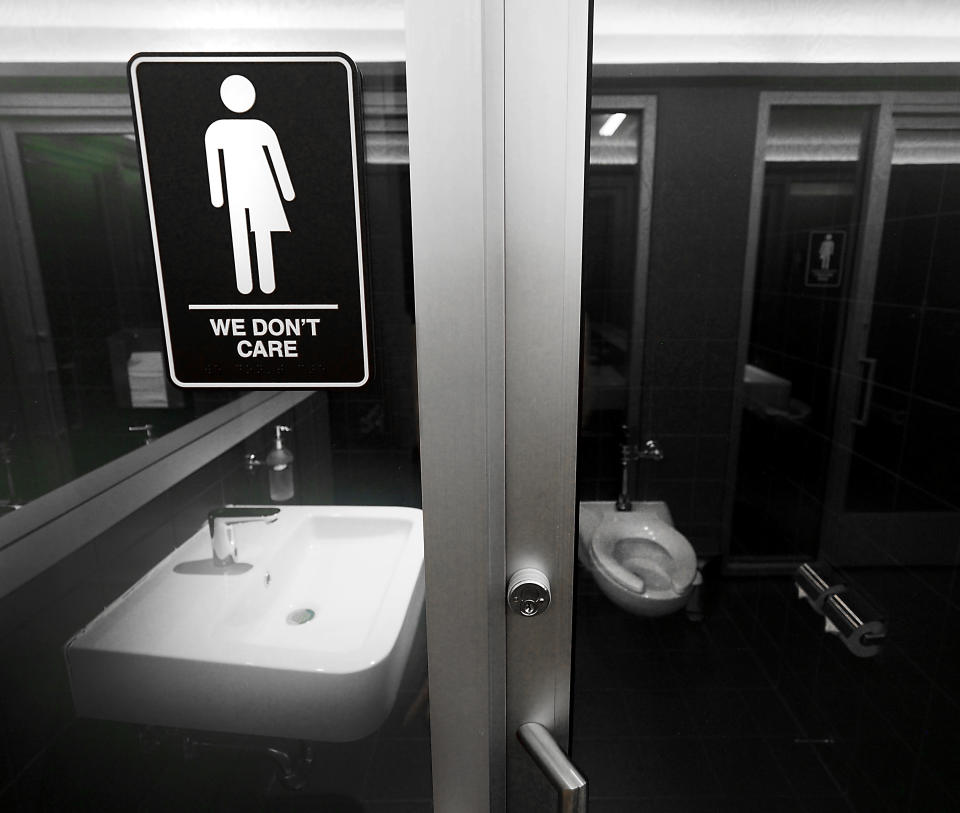Texas's 'Bathroom Bill' Could Mean Economic Disaster

The Texas legislature is currently debating different bills that would require either all Texans or just public school students to use restrooms that correspond with the gender on their birth certificates. If both houses can agree on a single policy before the clock strikes midnight Sunday, the bill would head to the desk of Republican Gov. Greg Abbott, who intends to sign it into law.
Some Republicans hope that the watered-down House version of the bill—which has opaque language and narrower scope than the Senate’s—will spare Texas the major economic consequences and boycotts North Carolina experienced after passing its own “bathroom bill” last year. GOP legislators are banking on the reaction to their legislation to be like the response to North Carolina’s milder replacement bill, which passed in March and eased political and economic pressure on the state.
But this is wishful thinking, ignoring that North Carolina’s amended legislation demonstrated the state’s movement in what many considered the right direction, especially under a new Democratic governor. Instead, opponents of the Texas legislation view the pending legislation as a slap in the LGBTQ community’s face, and a move in the wrong direction. As a result, Texas is likely to see the cancelation of major sporting events and conventions—and possibly even a major boycott—if it passes its bathroom bill.
Major sports leagues are aware of the fact that holding events in Texas in the future could be construed as condoning discrimination, which could lead other states to be more comfortable adopting similar legislation. To avoid appearing complicit in this, the NCAA could very well cancel the 2018 Final Four tournament in San Antonio, which would be a massive economic blow to Texas. The loss of the Final Four alone would cost San Antonio an estimated $234 million in foregone economic impact and $14 million in lost tax revenue. The bathroom bill could also make it difficult for Texas to secure major sporting events like the Super Bowl and NBA All-Star Game in the future.
Even more consequential than the loss of sporting events would be the notable decrease in convention business in the state’s major destinations of Austin, Dallas-Fort Worth, Houston, and San Antonio—which regularly rank among the country’s top 20 convention destinations—as well as in secondary convention markets like Amarillo, Corpus Christi, El Paso, and Galveston. Conventions and smaller meetings represent a significant economic engine in these locales and help sustain hundreds of thousands of jobs in Texas’s vibrant hospitality industry. They also provide the state and local governments with a significant source of revenue via sales tax receipts, as well as hotel and rental car taxes targeted at visitors.
Most organizations have a diverse membership and strive to not select convention sites that may cause controversy. If the bathroom bill is enacted, many of those tasked with arranging their organization’s conventions will be pressured to cancel existing commitments and to not book future conventions in the Lone Star State.
Texas barbecue and Mexican food are America’s best, but even they might not be good enough to prevent a massive fallout from this potentially disastrous legislation.
Mark P. Jones is the James A. Baker III Institute for Public Policy’s political science fellow at Rice University.

